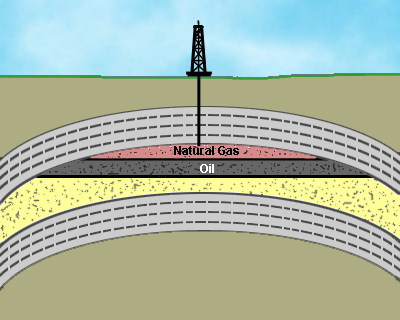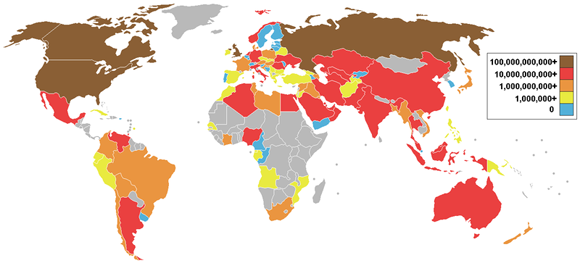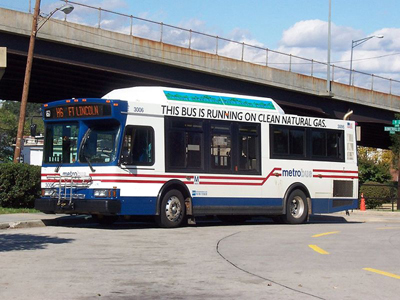
Natural Gas
If you have a gas stove in your home, you are relying on a second fossil fuel. How is the gas in your kitchen stove different from the gas you put in your car? The gas in your stove is natural gas rather than refined oil. Natural gas is a fossil fuel that forms directly in the environment, and exists naturally in a gaseous form. It is a mixture of gases and is 50 to 90 percent methane. It also contains smaller amounts of propane and butane gas. These are commonly sold as the fuel for gas barbeque grills.
Natural gas is usually found above reservoirs of crude oil. Like oil, it can be burned as a fuel. Natural gas supplies about 23 percent of U.S. energy needs. Scientists estimate that global reserves of natural gas will last between 62 to 125 years.
Like all fossil fuels, natural gas releases carbon dioxide when burned, and can cause air pollution. Natural gas, however, releases less carbon dioxide than oil or coal. So it is sometimes referred to as the cleanest of the three main fossil fuels. Natural gas gives us a high energy yield and burns cleaner than other fossil fuels, but it is dangerous to transport and can explode if not handled properly. Click each image to learn more about natural gas.


